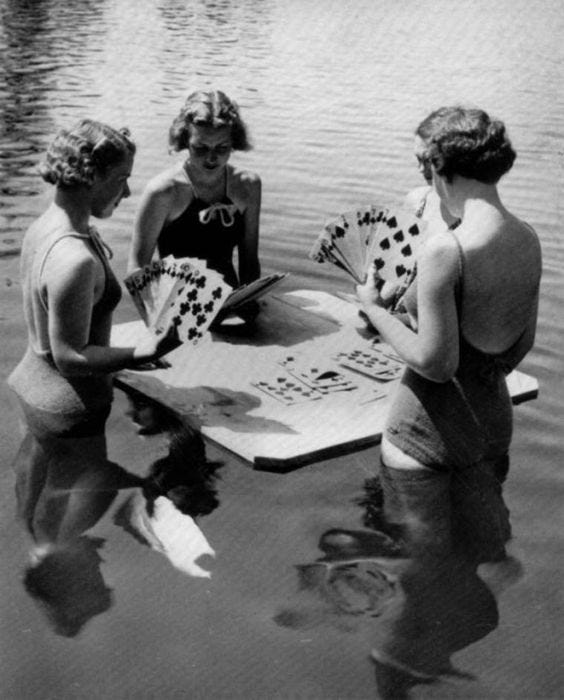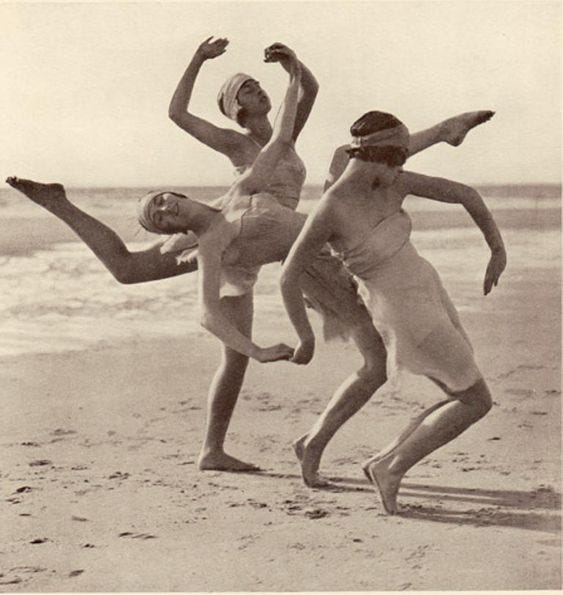Practical guide to creative alignment
Nurturing creativity and infinite potential
Society has done a pretty good job in establishing a belief system based on Fear. Most of us have successfully adopted this baseline when it comes to decision making and self-discovery. We fear listening to the still inner voice, we fear becoming someone new, we fear what others will think of us, or might even abandon us.
But what we fear the most is Love. The Love of going back to authenticity, the Love of meeting our truest self again, the Love of Creative Alignment.
As human beings, we are ALL inherent creators and creatresses. This is our divine essence and one of the most transcendent ways we impact the material realm.
There is no such thing as a “creative” person. This is a quality built in to each and every one of us.
Our creative essence lies in our natural desire to bring something forth and understand how we relate to the world. So if you are connected to your soul desire to bring something forth, your will to create must be stronger than your fear of judgement.
The problem often is that creativity cannot be taught, only nurtured. Something, the schooling system has failed us at. The good news is, creative intellect is a problem solving skill, that will never be substituted by a machine.
At first, it might not be the most comfortable process, but with practice one is able to train the creative muscles and enjoy the immense fulfilment that comes with it.
I believe, that creativity is the best way to discover your true calling, your deepest desire, purpose and understanding of the world.
Also what a synchronicity, that as I am typing this piece, a couple of young students are sitting on the table next to me and crafting some handmade jewellery.
From my experience creativity stems from 3 main domains:
Attention: your ability to focus and stay curious about the world
Stillness: your ability to empty your mind, replenish your system and contemplate
Practice: your ability to experiment continuously
Here are 9 actionable practices, that have nurtured my inner essence, to pursue and cultivate creativity from within. It is not necessary to apply all of them to tap into your creativity, but they are worth exploring for infinite creative potential.
1. Nurture curiosity
Seek out new experiences and perspectives. Exposure to new ideas, cultures, and knowledge can be a powerful catalyst for creativity. So make a point of seeking out new experiences and perspectives.
This could be as simple as exploring a new neighbourhood in your city or reading a book from a different genre. By exposing yourself to new things, you can spark new ideas and creative solutions.
“The creative process is not about accomplishment, it is about Expression. Finite games are designed to have a winner and a loser, infinite games are design that we continue to PLAY.”
— Dr. Zach Bush
2. Challenge
This is a bit counter intuitive, but there needs to be some form of internal struggle in you, to really feel the urge to create. Usually people’s best work comes out of a difficult moment in their life. And I am not saying to put yourself in danger on purpose, but challenge yourself by setting an intention or a goal that is outside of your comfort zone, but seems manageable. This will also help you with building momentum and practicing your skills.
3. Mindful media consumption
You want to navigate where your attention goes. Be mindful about the content and information you consume to make space for good ideas to flourish. Long form content is my jam these days - always motivates me to create after I listen to a podcast or watch a youtube video. Where as, short form content (most of it), leaves me feeling drained and uninspired, and not to mention it compromises your attention span and dopamine resistance.
Digital detox will give you time to reflect and get inspired by the real world. We have to be really diligent of protecting our energy and what media we consume. I always encourage long-form content over short-form: books, podcasts, youtube videos. I have left some book recommendations for you at the end of this post. A little trick I like to do, is look for quotes from a particular book I am interested in. This allows me to decide if I am interested in reading it, and also gives me enough inspiration to follow through with an idea.
Stay curios, explore your interests, question everything.
4. Stillness
You need space, stillness, time alone to contemplate and rest. Replenish. Contemplation is just another piece of the puzzle. It might seem this one is contradicting to having an internal struggle, but hear me out on this one.
Creativity often flourishes when your mind is at ease. So make sure to take regular breaks and engage in activities that help you relax and recharge.
This could be anything from going for a walk to listening to music to meditating. I highly recommend adopting a meditation practice for clarity of thought and improved focus.
By taking care of your mental and emotional well-being, you can create the space for creativity to flourish.
5. Journaling
If you don’t know where to start, begin by journaling about your genuine interests as a child. Going back and remembering what we enjoyed the most, when were we at our most happiest moments. When our fear of judgement was dormant, and our innocence and curiosity were most potent. Get in touch with your inner child
Consider keeping a creative journal where you take a few minutes to write down your thoughts, feelings, and observations in a stream-of-consciousness style. This can help you capture your creative ideas and keep track of your progress over time.
Bring it on to paper.
6. Routines & Rituals
This one is my favourite. Rituals are a great way to engage all of your senses. By performing them regularly, you train your mind into the habit of creating. It is important to experiment and adapt it to your liking. What worked for someone else, might not work for you.
Starting with a morning trigger routine, as suggested by Josh Waitzkin in his book The Art of Learning, might be something worth exploring. I have experimented with a variety of morning routines over the years. It is essentially what will keep you on track for most of the time. Relying on motivation alone, is not an option.
7. Redefine failure
FAIL = Further Attempts In Learning
Recently saw this in the comment section of a youtube video (see how I use it for inspiration), and I am definitely adopting this mindset.
Creativity often involves trying new things and pushing yourself outside your comfort zone (as we mentioned earlier). Many people are afraid to try new things or take risks because they fear failure. But the truth is that failure is a crucial part of the creative process. It allows you to learn from your mistakes, try new approaches, and ultimately arrive at a better solution.
So don't be afraid to fail - embrace it as a natural part of the creative process.
8. Celebrate your accomplishments
It's important to recognise and celebrate your achievements, no matter how small they may seem. Take time to reflect on your progress and the creative work you have produced. This can help you stay motivated and continue to grow.
“In our willingness to step into the unknown, the field of all possibilities, we surrender ourselves to the creative mind, that orchestrates the DANCE OF THE UNIVERSE.”
— Deepak Chopra
9. Lean into a community
Very rarely do we accomplish something on our own. Creativity is contagious, so surrounding yourself with other creative people can be a great way to cultivate your own creativity.
Join a community (there are plenty online or even better in person) of like-minded people and engage in regular discussions and collaborations. This can provide a supportive space for sharing ideas, feedback, and encouragement.
The pursuit for creativity lets you discover a sense of safety, a sense of individuality and a sense of abundance.
Let us all create and experience life from a space of LOVE, and not fear.
Creative energy is infinite, so is your potential.
I would love to hear what you think of this guide and if it was inspiring for you. Let me know in the comments below, if you have any questions or insights that came up.
Recommended reading:
The Artist’s Way by Julia Cameron
The Art of Learning by Josh Waitzkin
The War of Art by Steven Pressfield
Show Your Work by Austin Kleon
On Writing by Stephen King







